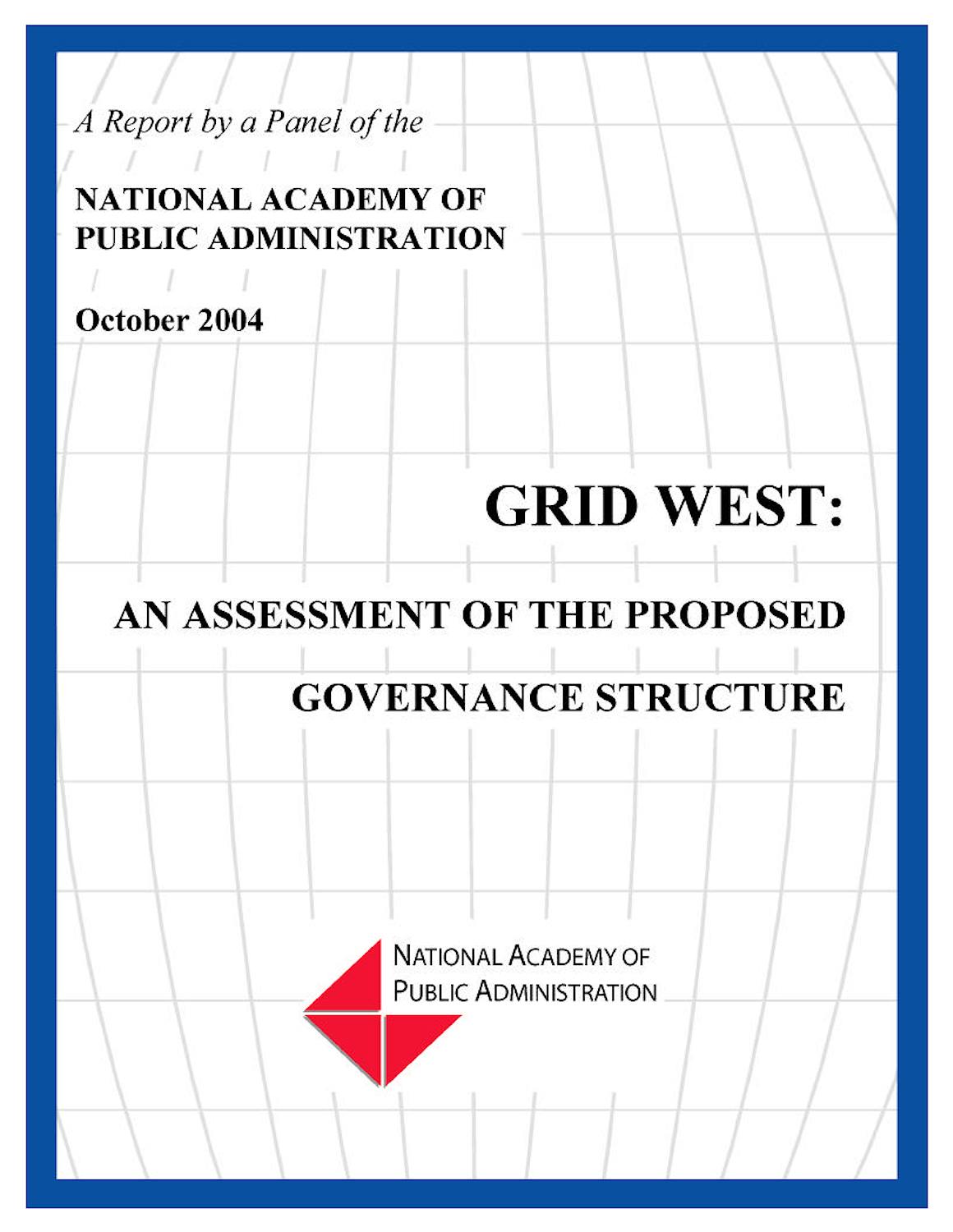
Grid West: An Assessment of the Proposed Governance Structure
The nation’s electric power system has been subject to increasing stress in recent years. One response has been the development of regional solutions for improving transmission reliability and efficiency.
For more than a decade, the Northwest region has discussed different approaches for consolidating and integrating operation of its electric transmission grid. Stakeholders currently are considering forming an independent entity—Grid West—to operate a consolidated electric transmission grid for the Northwest region. Changes to this grid could affect the region’s stakeholders differently. Not surprisingly, there are divergent and deeply held views about the merits of any specific reform proposal.
Because of these concerns, the Bonneville Power Administration asked the Academy to convene a Panel to assess the proposed governance structure for Grid West. This Panel report contains recommendations to strengthen Grid West’s accountability, improve its workability and provide more effective mechanisms for controlling costs.
Click the button below to view the View Study Report.
View ReportKey Findings
To assess the four issues on the proposed governance structure for the operational Grid West entity, the Academy Panel first assumed that the regional stakeholders have not only agreed to adopt the developmental bylaws, but have also decided to adopt the operational bylaws as well. Given these assumptions, the Academy Panel established criteria for evaluating the quality of the Grid West governance structure, assessed key elements of the governance structure, identified tentative findings, and proposed recommendations to strengthen and enhance the workability, accountability, and efficiency of the Grid West governance structure.
Recommendations
The Panel believes that the balance between (1) open decision-making processes and (2) the need for candid exchanges of views on some issues might be revisited. Thus, the Panel suggests, but does not necessarily recommend, that consideration be given to having the bylaws permit the corporation to hold executive sessions for reasons that would be allowed under the Federal Government in the Sunshine Act. Strong board members must be willing and able to make decisions for the good of the region on the whole even though a small number of stakeholders may not fully share in all the benefits. Therefore, the Panel recommends that the required quorum of the MRC for purposes of electing Board members be set at two-thirds of the 30 members and that a Board member should be elected on the basis of two-thirds of the votes cast.
